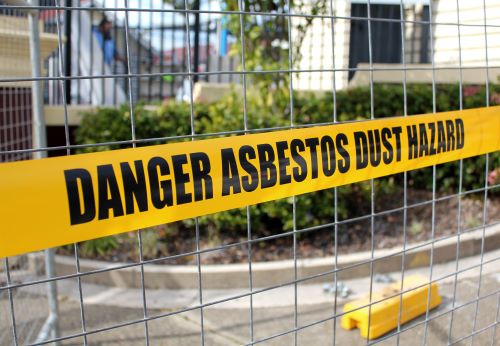You can file a claim for workers’ compensation claim if you have been diagnosed with an occupational disease. These work-related illnesses are caused by exposure to hazardous materials or conditions in the workplace. But how do you prove that you become sick because of your job?

We’ll explore Ohio’s definition of occupational diseases and how a Centerville workers’ compensation lawyer can help you get the benefits you deserve.
Table of Contents
How Does Ohio Law Define Occupational Disease?
Ohio law defines an occupational disease as a medical condition caused by an employee’s exposure to harmful substances or conditions in their work environment. Ohio recognizes various types of workplace illnesses, including respiratory disorders, skin diseases, hearing loss, and many others.
You’ll need to demonstrate that you contracted the condition contracted during the course of your employment. This means providing evidence that links your work activities with the onset of symptoms or diagnosis.
A knowledgeable Centerville workers compensation lawyer can help ensure that you receive the benefits you deserve under the law.
The Most Common Causes of Occupational Illnesses
OSHA, the Occupational Safety and Health Administration, has identified several common causes of occupational diseases.
- The first is exposure to chemicals such as asbestos, lead, and pesticides. Workers who come into contact with these substances on a regular basis are at risk for developing lung disease, cancer, or neurological damage.
- Another common cause is repetitive motion injuries. This type of injury occurs when an employee performs the same task repeatedly over time. It can affect any part of the body but often involves the hands and arms.
- Exposure to loud noises is also a frequent cause of occupational diseases. Over time, exposure to high levels of noise can lead to hearing loss or other auditory problems.
- In addition to physical hazards, OSHA recognizes that mental stress can cause occupational diseases as well. Jobs that require significant emotional labor or expose workers to traumatic events may result in anxiety disorders or post-traumatic stress disorder (PTSD).
Employers have a responsibility under OSHA standards to provide safe working conditions for their employees. When they fail to do so and an employee develops an illness because of workplace conditions, they may be liable for damages including medical expenses and lost wages due to missed workdays.

Common Types of Job-Related Diseases
Occupational diseases are illnesses that arise due to exposure to harmful substances or working conditions.
Workers in a variety of industries can be susceptible to job-related illnesses, from construction workers to office workers. Here are some of the common types of occupational diseases:
- Respiratory diseases can result from inhaling dust, fumes, and other airborne particles that damage the lungs over time. Examples include asbestos-related mesothelioma and lung cancer.
- Skin conditions can be caused by exposure to irritants like chemicals, radiation, or extreme temperatures. Eczema or contact dermatitis are two examples.
- Musculoskeletal disorders (MSDs) affect the muscles and joints throughout the body and often occur in jobs requiring heavy lifting or repetitive motion.
- Noise-induced hearing loss often develops over years of working in loud environments such as factories or construction sites.
It’s important for employers to take steps to minimize these risks through proper training programs and safety measures. If you believe you may have developed an occupational disease due to workplace conditions, it’s important you speak with a Centerville workers compensation lawyer for guidance.
How to Obtain Workers’ Comp for an Occupational Disease
To obtain workers’ compensation for an occupational disease in Ohio, you must prove three essential elements.
The first is establishing that you have contracted a specific illness due to exposure at work. This means providing medical evidence of the diagnosis and connecting it to your job duties or environment.
The second element requires demonstrating that the harmful agent or substance causing the disease was present in your workplace during your employment. This can be proven through testimony from coworkers, supervisors, or safety inspectors who have knowledge of these conditions.
Thirdly, you must show a relationship between the hazardous conditions at work and how they caused your illness. You may need expert testimony from doctors familiar with occupational diseases who can explain how certain exposures increase the risk of developing particular illnesses.
Workers injured in an accident must file a workers’ comp claim within one year, the deadline for occupational disease claims is two years.
Talk to an Experienced Centerville Workers’ Compensation Lawyer!
If you have been diagnosed with an occupational disease, it is important to seek the guidance of an experienced workers’ compensation lawyer. They can help guide you through the process of proving your case and obtaining the benefits that you are entitled to receive.
Don’t try and navigate this complex legal process alone. A knowledgeable attorney at Young, Reverman & Bolotin can provide invaluable assistance in gathering evidence, filing the necessary paperwork, negotiating with insurance companies, and representing you at hearings if necessary.
If you think you may have an occupational disease as a result of workplace exposure, contact our Ohio workers’ compensation attorneys today.

